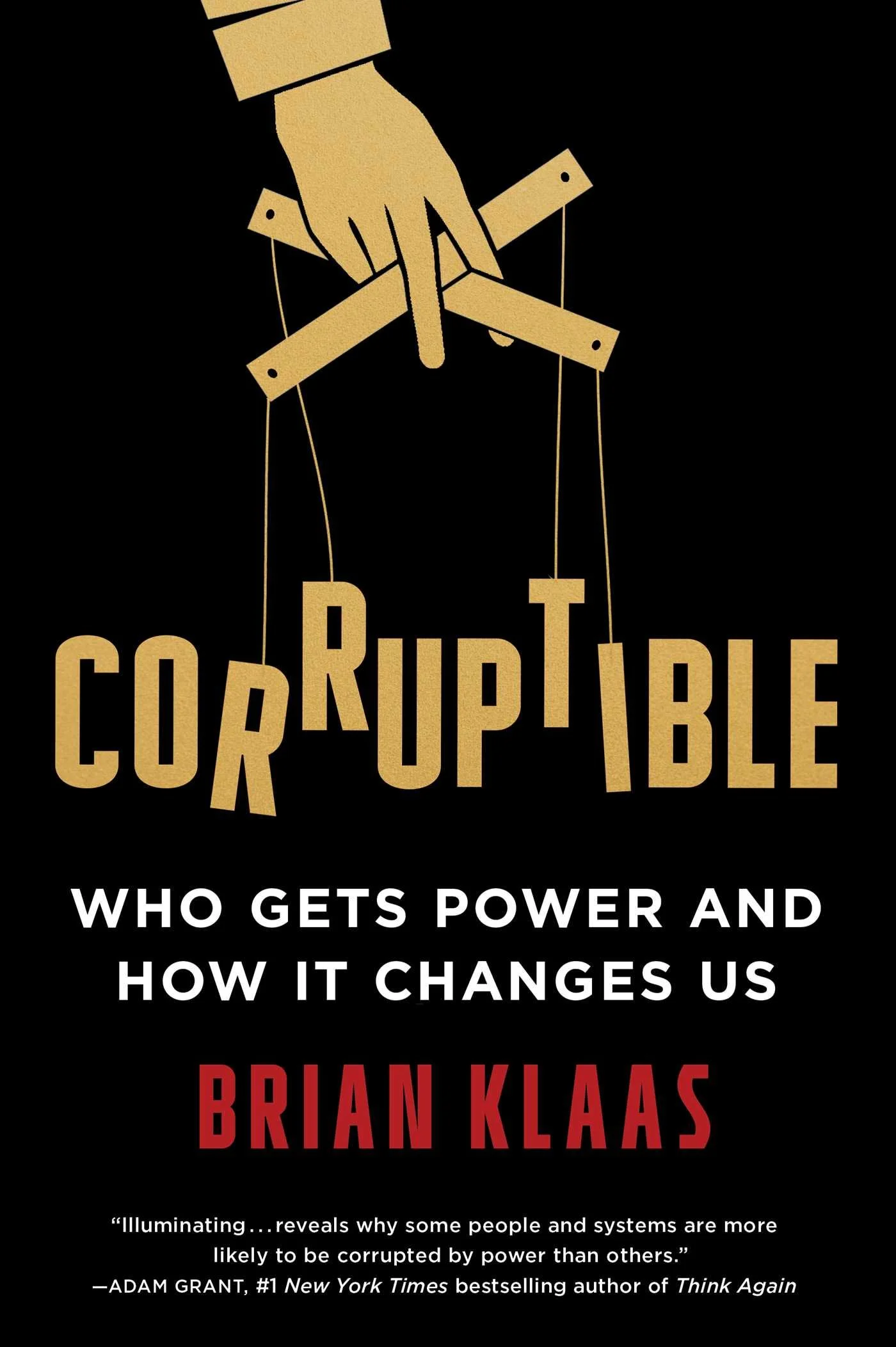Seeing It From Every Angle: Corruptible by Brian Klaas
Did you know the former president of Madagascar was overthrown by a 34-year-old radio DJ? Have you ever wondered what happens when researchers load up monkeys with cocaine? Would you like to go on a date with the daughter of an African dictator? Why is the guy from the homeowner's association a solid-gold asshole?
Those questions might sound like responses from an AI generator on its fifth Budweiser, but they are in fact all subjects covered in Brian Klaas's brilliant new book, Corruptible.
What's It About?
Brian Klaas, a political scientist at University College London, has done something rather unusual in this book: demolish a cliché. Everyone has heard the expression "power corrupts but absolute power corrupts absolutely" (the origins of which Klaas looks at BTW). It's a cliché for a reason: we've seen what happens to people when they come into positions of power. Not only does their moral compass collapse, but they also gain perverse pleasure in hurting other people. History is replete with examples of kings, emperors, presidents, and corporate executives who made life an absolute hell for everyone else.
But writing a book saying "yes, that cliché is true, have a good day" would be extremely boring if for no other reason than nobody would learn anything.
However, Klaas goes against the grain and tries something else. Rather than write about power as this vast impersonal force magically exerting itself on all persons, he instead reframes the questions we ask about power. Instead of asking "does power corrupt", Klaas posits the questions "what kind of people are systems of power attracting", "do systems optimise for the right behaviours in people", "what are the circumstances that draw out certain kind of behaviour in people", and so on.
By reframing the usual question, Brian Klaas has put a fresh spin on a tired subject and he might just change your perspective in the process.
What Works
The book's strength is Klaas's marvellous ability to examine the application of power from every possible angle. He looks at corruptible people, corruptible systems, random circumstance, and even neurochemistry changes in people’s brains. This core strength allows Klaas to explore absolutely fascinating subjects, and meet extremely interesting people.
The levels of power Klaas examines vary hugely in scale. Klaas gives himself breathing room by writing about psychopathic schoolboard leaders with as much passion as the absolute dictator of Madagascar controlling an entire country. This breadth in scope gives the book a personality because it is wholly devoid of abstruse theorising about what goes on in the corridors of power. Whilst on the subject, Klaas certainly encounters those who have walked those corridors, all to the book’s benefit.
A major strength of the book is Klaas’s extensive interviewing of powerful people. He had access to the aforementioned deposed dairy kingpin-turned-president of Madagascar, but he also had the chance to interview ex-Prime Minister Tony Blair and plenty of others. By meeting and talking to them about the decisions they made—some minute, some monstrous—Klaas puts a human face on the powerful and lets the reader pass their own judgement.
And yet, the high-profile people Klaas interviewed aren't even the most interesting characters to appear in the book. Among the most memorable are researchers working with monkeys in laboratories. Monkeys, being the closest species to humans, can be tested in ways that humans never could, including by deliberately giving them cocaine (yes really). Just the premise "giving coke to a monkey" is fascinating and could be its own book, so I’m thrilled Klaas included this delightful vignette.
In short, Klass’s core combination of examining power from every angle and having access to the world’s most fascinating humans makes Corruptible an extremely fun read.
What Doesn't Work.
Basically nothing, good night.
You Can't Be Serious
I am quite serious. This book is well-researched, well-written, and easy to recommend. It changed my perspective on so many things that even if its conclusions turn out to be empirically bunk, it doesn't really matter. So unlike other reviews on the site, I will not be writing a five-hundred word complaint to the court of literary appeals about the gross injustices committed against high art because such injustices were never committed.
Sometimes, a book with two or three compelling elements like Corruptible is just a good read and I have nothing else to say.
Go read it for yourself.
